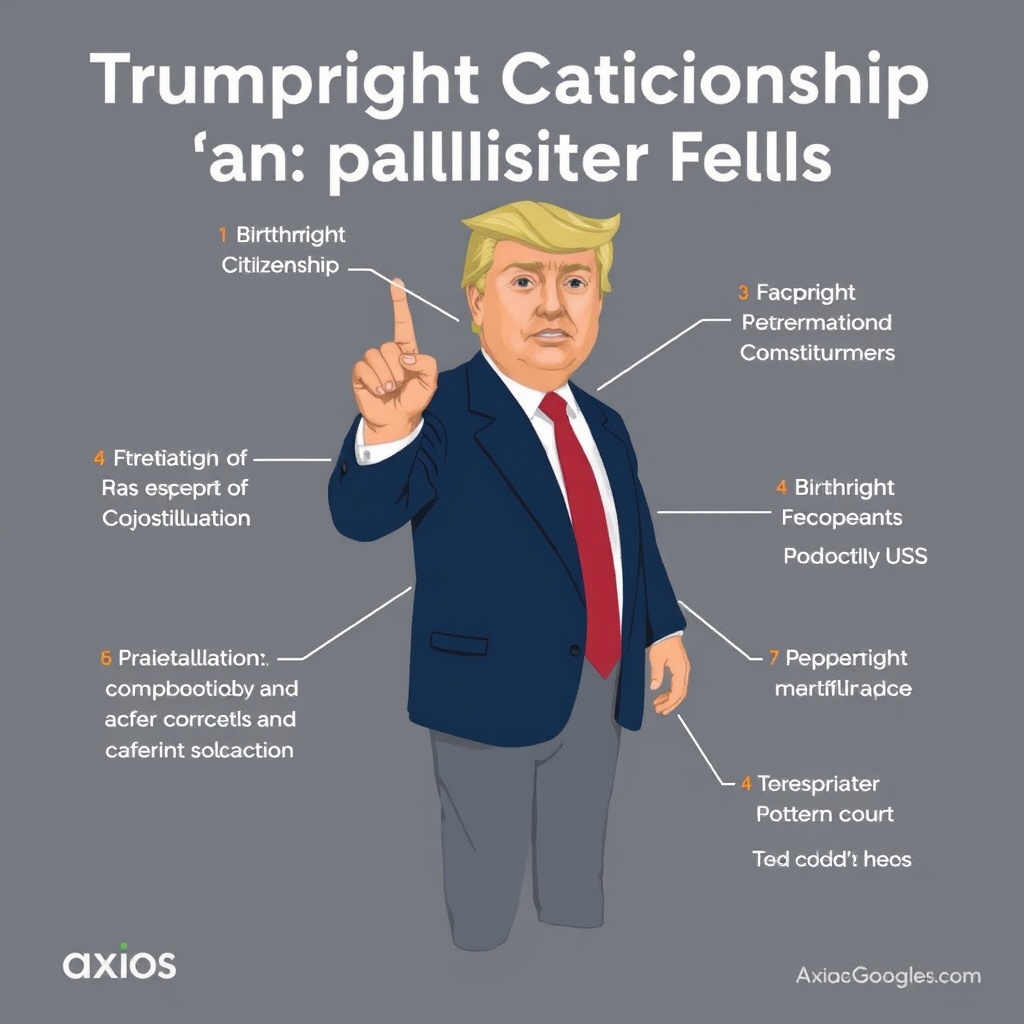Introduction
The concept of birthright citizenship has been a cornerstone of American identity and a fundamental principle of the country's immigration policy. However, in recent years, this concept has been subject to intense debate and controversy, particularly under the presidency of Donald Trump. In a significant development, a federal appeals court has ruled that President Trump's executive order seeking to end birthright citizenship in the U.S. is "unconstitutional." This ruling has far-reaching implications for the future of immigration policy in the United States and underscores the ongoing struggle between the executive branch and the judiciary over the interpretation of constitutional powers. This article will delve into the details of the court's decision, the historical context of birthright citizenship, and the potential consequences of this ruling for immigration policy and American society.
Historical Context of Birthright Citizenship
Birthright citizenship, also known as jus soli, is the principle that any person born within the territory of a country is automatically a citizen of that country. This concept is enshrined in the 14th Amendment to the U.S. Constitution, which states, "All persons born or naturalized in the United States, and subject to the jurisdiction thereof, are citizens of the United States and of the State wherein they reside." This amendment was ratified in 1868, following the Civil War, with the primary intention of granting citizenship to former slaves and their descendants. Over time, the interpretation of the 14th Amendment has been broadened to include all individuals born within the United States, regardless of the immigration status of their parents.
The concept of birthright citizenship has been upheld by numerous court decisions, including the landmark case of United States v. Wong Kim Ark (1898), which ruled that a child born in the United States to Chinese immigrant parents was a U.S. citizen. This decision has been cited in numerous subsequent cases to affirm the principle of jus soli. Despite these legal precedents, the issue of birthright citizenship has become increasingly politicized in recent years, with some arguing that it incentivizes illegal immigration and others contending that it is a fundamental aspect of American identity and a magnet for legal immigration.
The Trump Executive Order and Its Implications
In 2018, President Trump announced his intention to sign an executive order that would end birthright citizenship, sparking widespread controversy and legal challenges. The order, which was ultimately issued, aimed to restrict citizenship to only those born in the United States to parents who are citizens or legal permanent residents. Proponents of the order argued that it was necessary to prevent what they termed "anchor babies" and to reduce the allure of illegal immigration. Critics, however, argued that the order was unconstitutional, as it directly contradicted the clear language of the 14th Amendment.
The federal appeals court's ruling that the Trump executive order is unconstitutional is a significant setback for the administration's immigration policy. The court's decision is based on a straightforward interpretation of the 14th Amendment, which does not provide for exceptions based on the immigration status of parents. This ruling is consistent with previous judicial decisions and reinforces the principle that birthright citizenship is a fundamental right that cannot be unilaterally revoked by executive order.
Implications for Immigration Policy and Society
The appeals court's ruling has several implications for immigration policy and American society. Firstly, it underscores the limits of executive power in shaping immigration policy, emphasizing that significant changes must be made through legislative action rather than executive fiat. This ruling may also impact the broader debate over immigration reform, as it reinforces the legal foundation of birthright citizenship and may discourage future attempts to undermine it through executive orders.
Furthermore, this decision has significant social implications, particularly for the millions of individuals who have benefited from birthright citizenship. It reaffirms the principle that every person born in the United States, regardless of their background or the status of their parents, is entitled to the rights and protections of citizenship. This principle is not only a matter of legal interpretation but also a reflection of the inclusive and diverse nature of American society.
In conclusion, the federal appeals court's ruling that President Trump's executive order on birthright citizenship is unconstitutional marks a crucial moment in the ongoing debate over immigration policy in the United States. By upholding the principle of jus soli, the court has reinforced a fundamental aspect of American identity and underscored the importance of judicial oversight in ensuring that executive actions comply with constitutional norms. As the United States continues to grapple with the complexities of immigration reform, this decision serves as a reminder of the enduring importance of birthright citizenship and the need for any changes to immigration policy to be grounded in a thorough understanding of constitutional principles and the democratic process.
Conclusion
The issue of birthright citizenship is deeply intertwined with the fabric of American society and the country's immigration policy. The recent appeals court ruling against President Trump's executive order is a significant development that underscores the constitutional foundations of this principle. As the debate over immigration reform continues, it is essential to approach the issue with a nuanced understanding of its legal, social, and political dimensions. The principle of birthright citizenship, as enshrined in the 14th Amendment, remains a cornerstone of American identity, symbolizing the country's tradition of inclusivity and its role as a beacon of hope and opportunity for individuals from around the world. The ongoing struggle over the interpretation and application of this principle reflects broader tensions in American society and politics, highlighting the need for a comprehensive and bipartisan approach to immigration reform that respects the constitutional rights of all individuals born in the United States.


Leave a comment